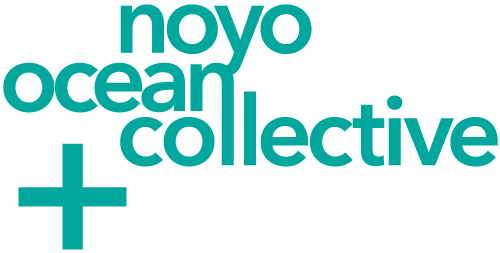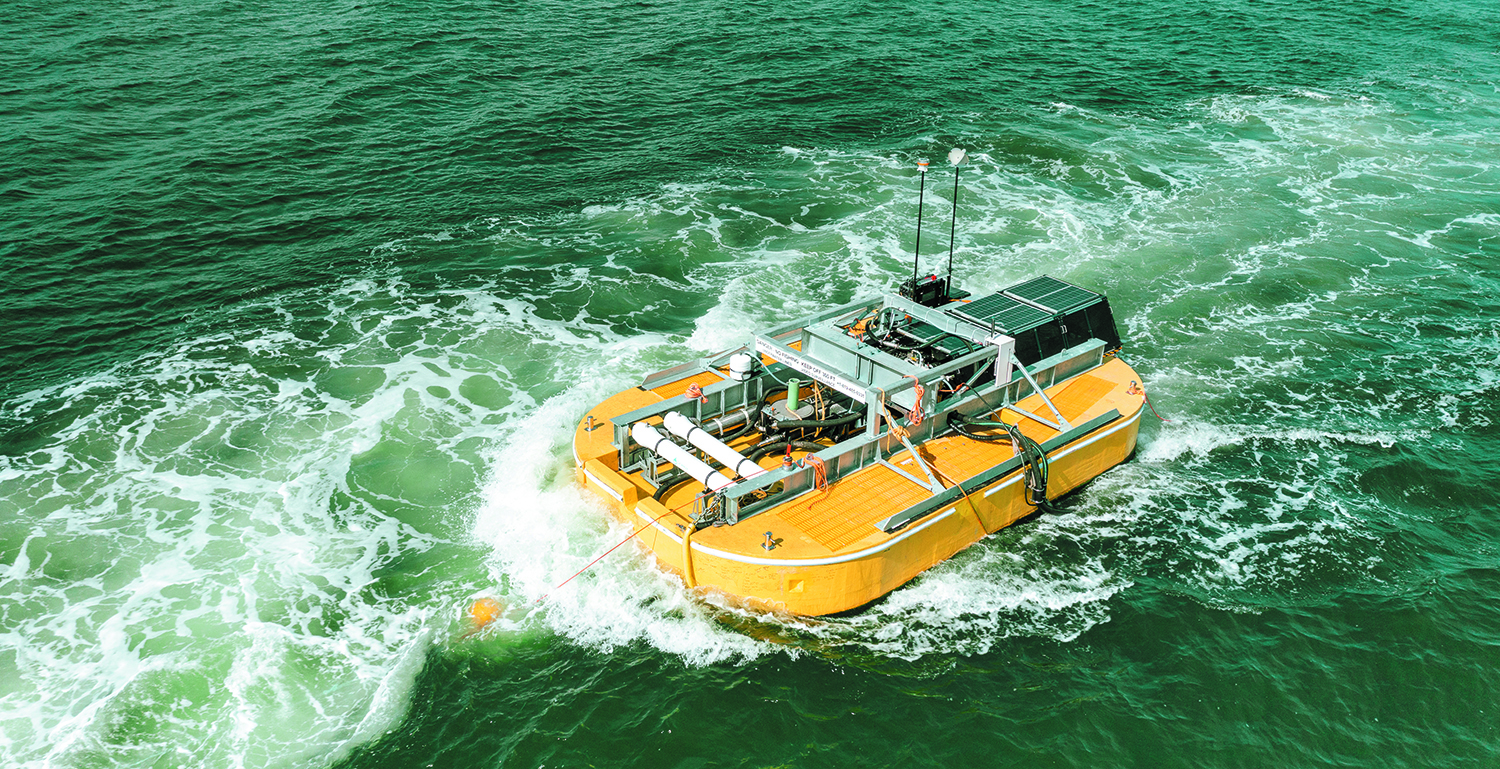Hog Island Oyster Co.
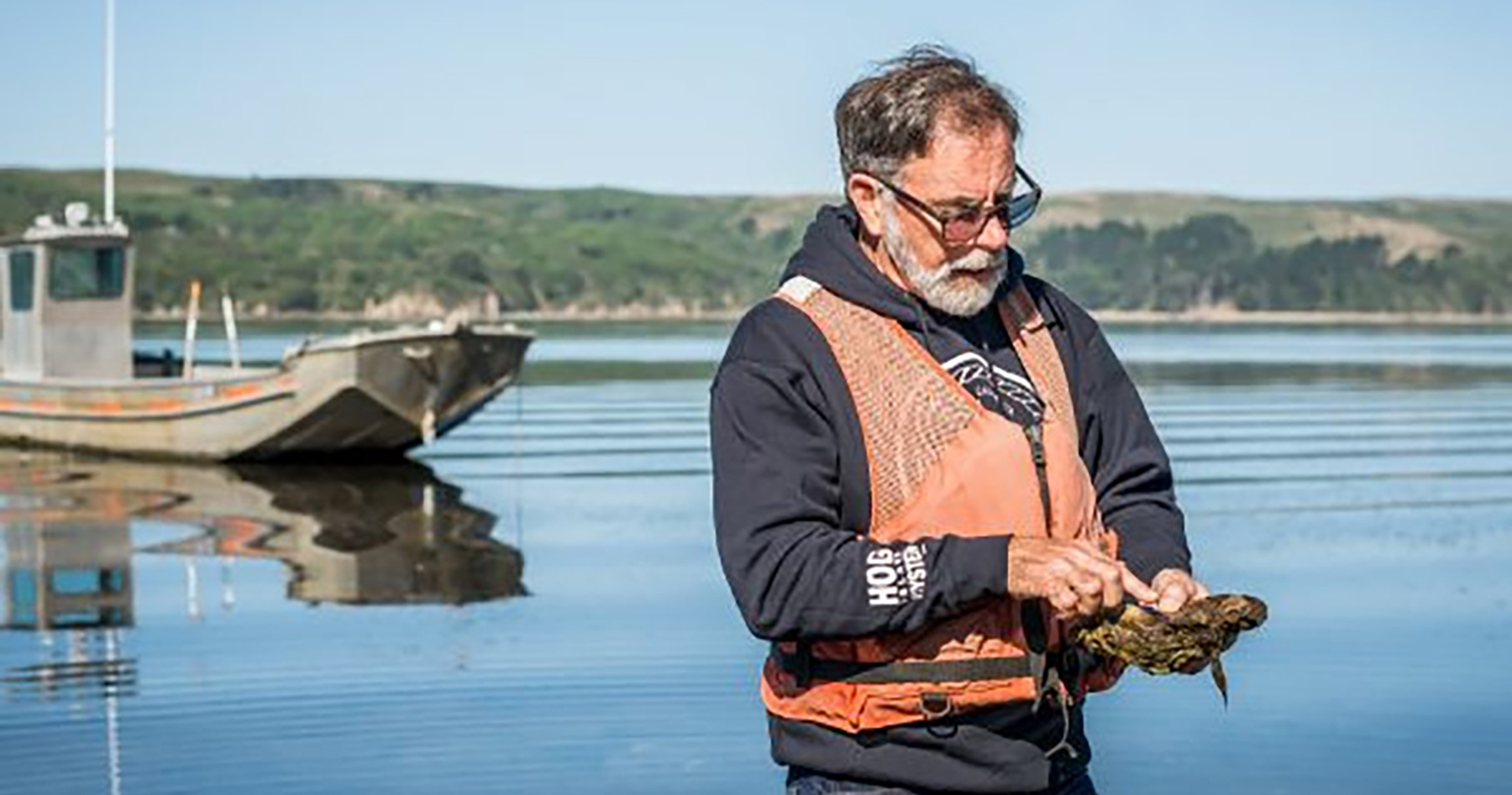
Hog Island Oyster Co.
Hog Island Oyster Co. has been growing shellfish for 40 years. Like most shellfish farms, Hog Island mainly sells the large Pacific oyster, although also produces small quantities of other species, such as Kumamotos, Virginica, European Flats, and most recently, Olympia. The Olympia oyster, or “Oly” is the only oyster native to the west coast of North America, and persists in very low numbers in certain estuaries and bays they were once abundant. In an effort to reverse their decline in Tomales Bay, Hog Island is utilizing aquaculture-assisted restoration to raise Olys for both market and restorative value. Hog Island is also working to help researchers better understand the relationship between oyster aquaculture activity and eel grass habitat.
ecoSPEARS

ecoSPEARS
ecoSPEARS is working to eliminate forever chemicals from our soil, sediment and water. Its cleantech solution extract and eliminate PFAS, PCBs, dioxins, 1,4-dioxana, and persistent toxins from the environment. Founded in 2017, we first learned about this company through the Port of San Diego’s Blue Economy Incubator and are excited to introduce them to you! ecoSPEARS is a NASA-developed, non-destructive, low maintenance alternative to dredging that absorbs contaminated sediment “like a sponge” without destroying the natural aquatic habitat.
ECOncrete
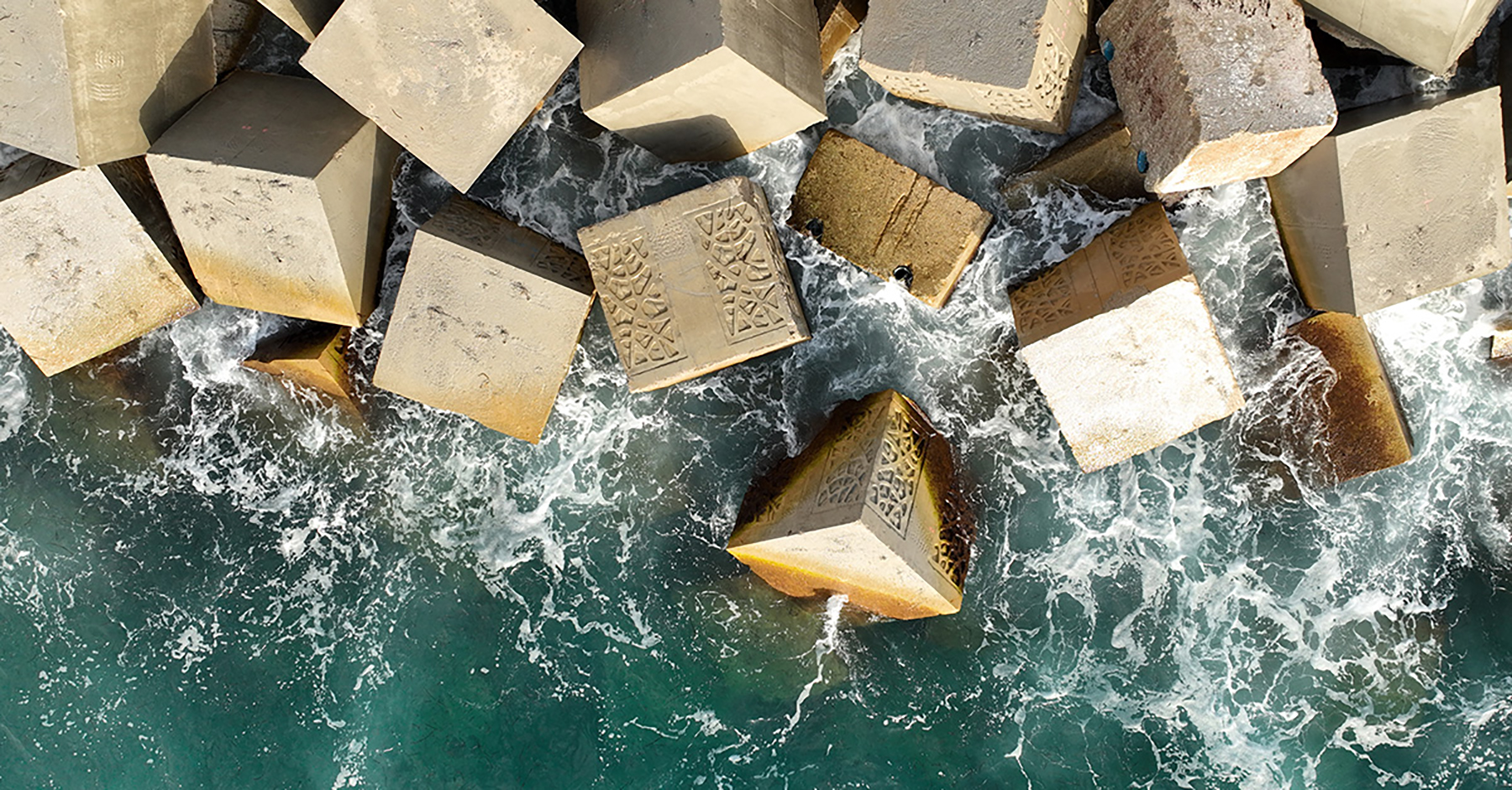
ECOncrete
ECOncrete is bringing concrete to life with their innovative approach to marine construction. We first learned about ECOncrete in 2020 when they joined the Port of San Diego’s Blue Economy Innovation to demonstrate a new design of its tide pool shoreline armoring technology. It’s amazing technology that replaces traditional riprap with interlocking units that are designed to mimic tide pool and cave habitats. Scroll through their website to learn about hoe ECOncrete is rebuilding marinas and ports worldwide.
Oneka Technologies
Oneka Project Status
Oneka Technologies
Wave-Powered Sustainable Desalination
Oneka Technologies offers solutions that turn seawater into fresh water, using only the renewable energy from ocean waves. The entire process takes place offshore from modular buoys. The energy from the ocean activates a wave-actuated pump that moves seawater through reverse osmosis membranes, and delivers fresh water through an underwater pipe to shore.


The ResilienSea Project
The city’s water needs, combined with California’s tremendous potential for wave-powered desalination—given its 840 miles of coastline and year-round waves—led the City of Fort Bragg to partner with Oneka to deploy the state’s first wave-powered desalination demonstration site, located about half a mile from Fort Bragg’s Wastewater Treatment Plant. The goal of this 12-month demonstration project is to showcase the benefits of Oneka’s desalination technology across all facets of sustainable development—social, economic, and environmental—representing a crucial first step in addressing water security challenges for Fort Bragg and other coastal communities.
The City of Fort Bragg and Oneka Technologies is pursuing a two-tier permitting strategy: Accelerated (pilot/temporary) and Traditional (long term, larger deployment). Several agencies are working on the permitting, including: Dept. of Fish and Wildlife; State Lands Commission; Army Corps of Engineers; California Coastal Commission; U.S. Coast Guard. Examples of required studies include: Entrapment Study; Benthic Habitat Survey; Subsurface Intake Feasibility; Brine Discharge Technology Empirical Study; Essential Fish Habitat Assessment; and a Sensitive Species Survey.
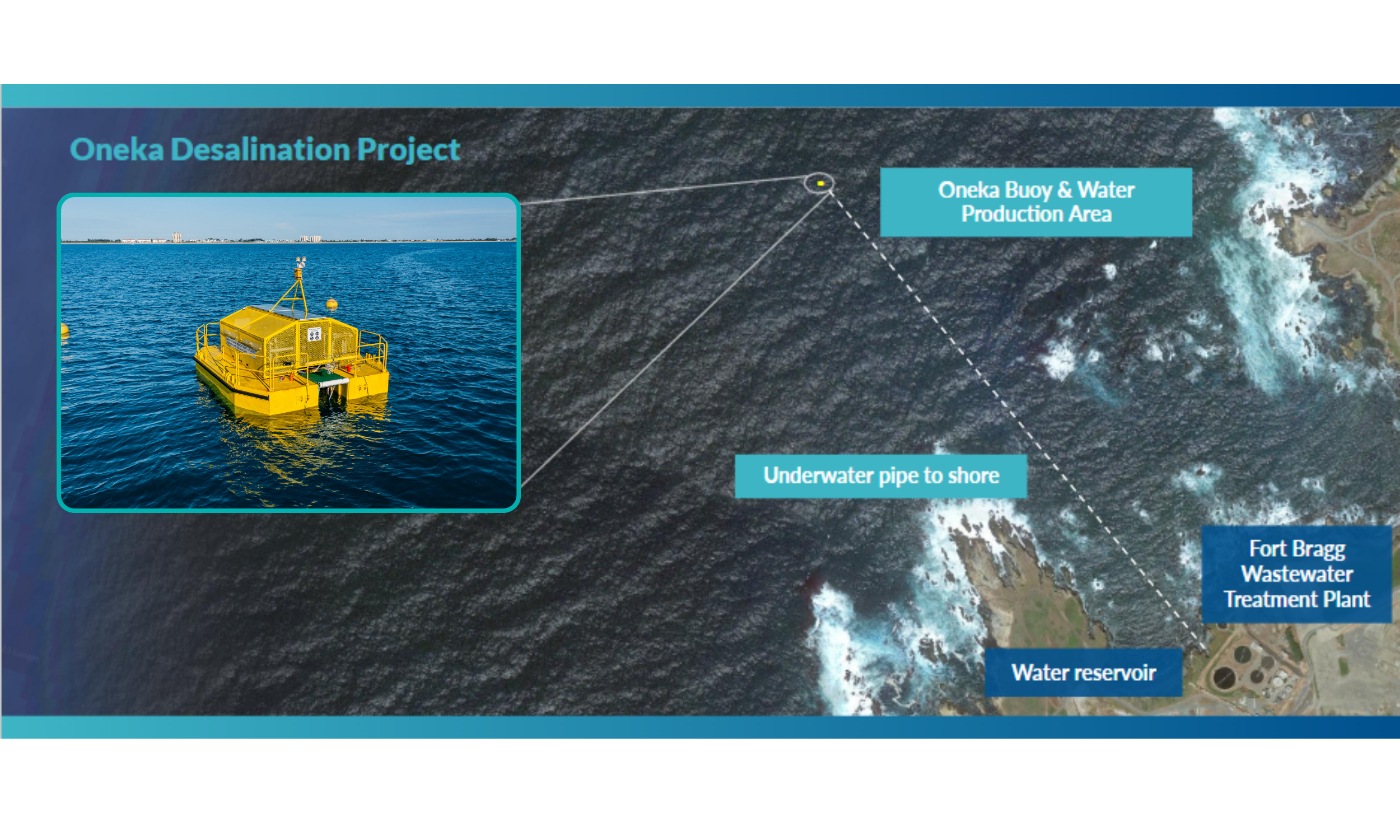

ZERO GHG EMISSIONS
The Oneka solution doesn’t emit any GHG and saves 1 ton of CO2e/year for each m3 of fresh
water produced daily. This means that the 12-month pilot project would save 50 tons of CO2e.

LOWER SALINITY AND WELL DIFFUSED BRINE
The Oneka system brine is only 30-50% saltier than that of the ocean, compared to 80-110% with conventional desalination, and is discharged over a vast area near the surface in an active water column, so the brine is quickly returned to the salinity of the ocean.

SAFE WATER INTAKE
The intake is engineered to protect sea life, designed with 60-micron mesh (smaller than the thickness of human hair), and backwashed to reduce maintenance and ensure enhanced suction protection.

NO LAND USE FOR DESALINATION
The entire desalination process takes place offshore, which significantly reduces the impact on deforestation, as compared to traditional and solar energy driven desalination solutions.
DROUGHT-PROOF WATER SOLUTION
Increase community’s resilience to water scarcity.
SUPPORT THE ECONOMIC DEVELOPMENT OF THE REGION
As water is necessary for life and all economic activities.
LEARN MORE ABOUT THE PROJECT
THE MEANING OF THIS PROJECT FOR THE COMMUNITY OF FORT BRAGG
BLUE ECONOMY IN FORT BRAGG
Stay tuned and check back here for updates as this project progresses, and sign-up for “Blue Economy” e-notifications on the City’s website, as well as e-newsletter from Noyo Ocean Collective.
Sunken Seaweed

Sunken Seaweed
Sunken Seaweed was founded in 2107 with the mission to improve California’s kelp forest ecosystems. Armed with knowledge and research experience from CalPoly Humboldt, inspiration from Greenwave and pilot project support from the Port of San Diego’s Aquaculture and Tech Program, Sunken Seaweed has expanded and is busy farming seaweed in the waters of Humboldt Bay.
